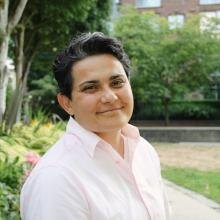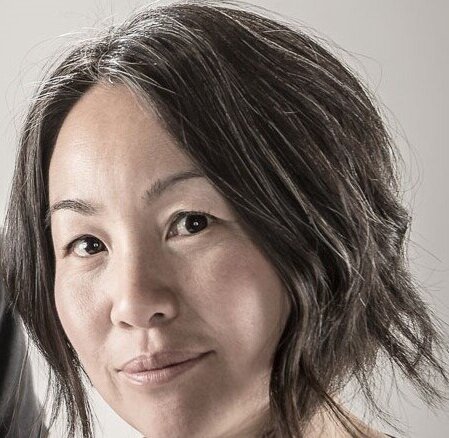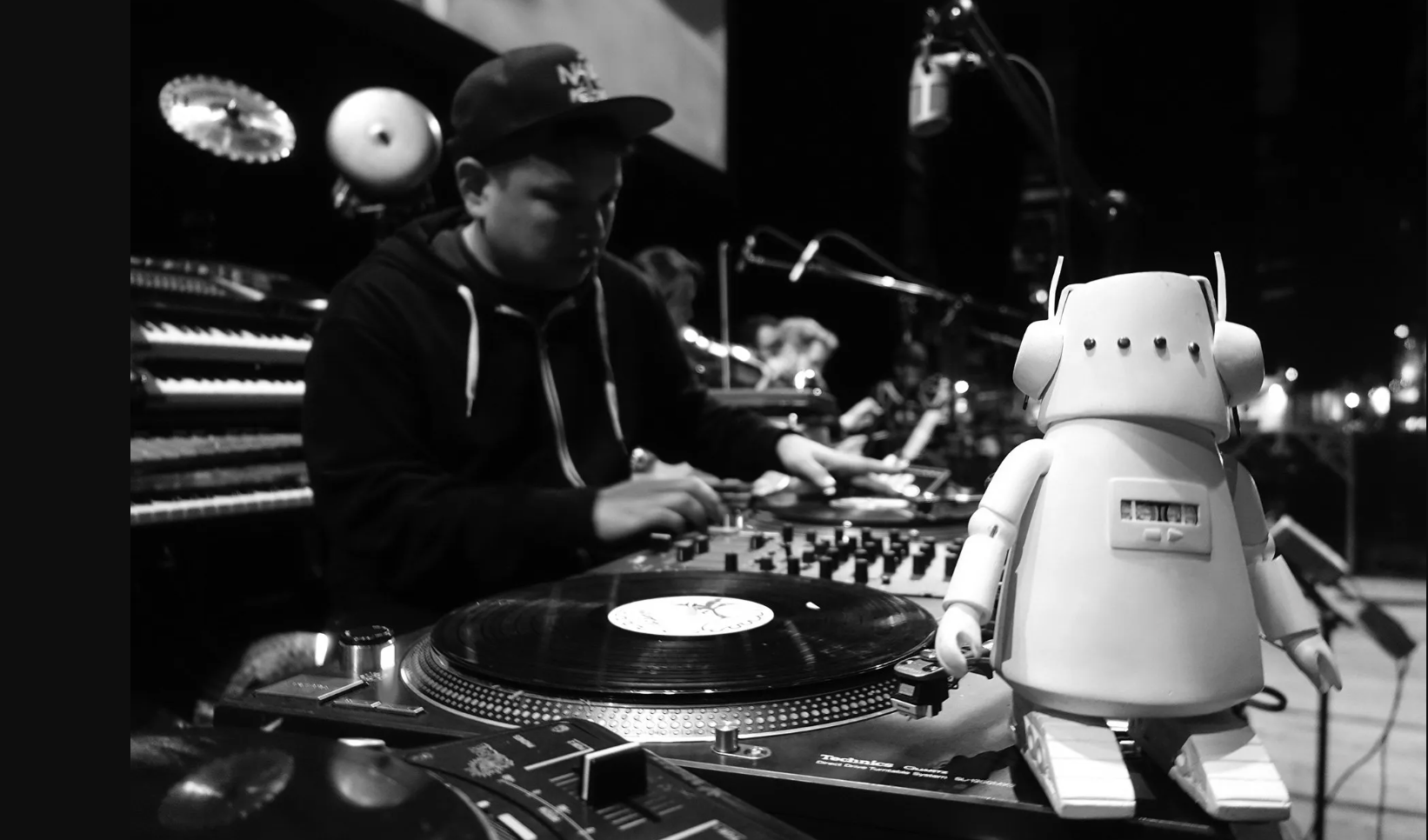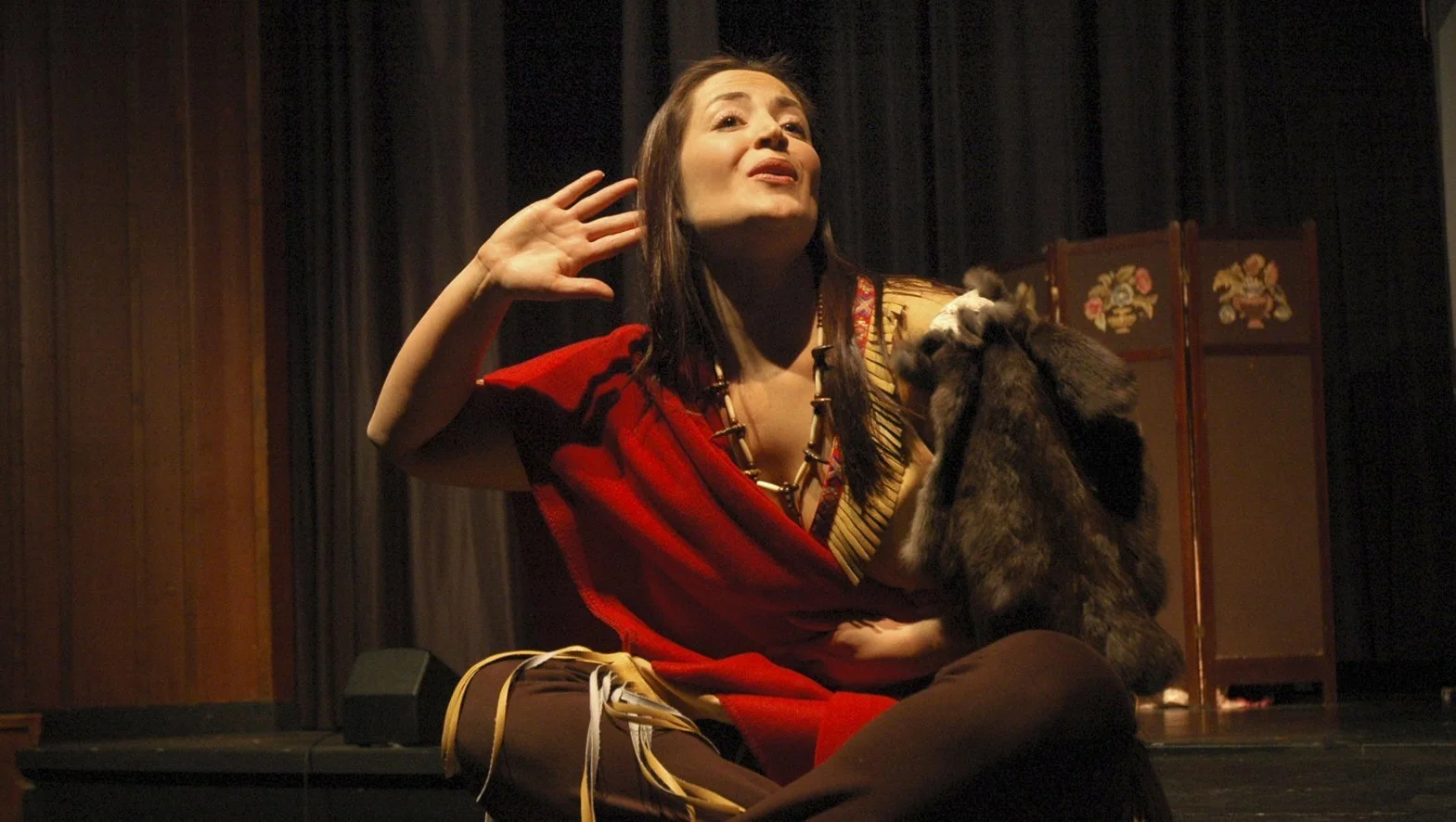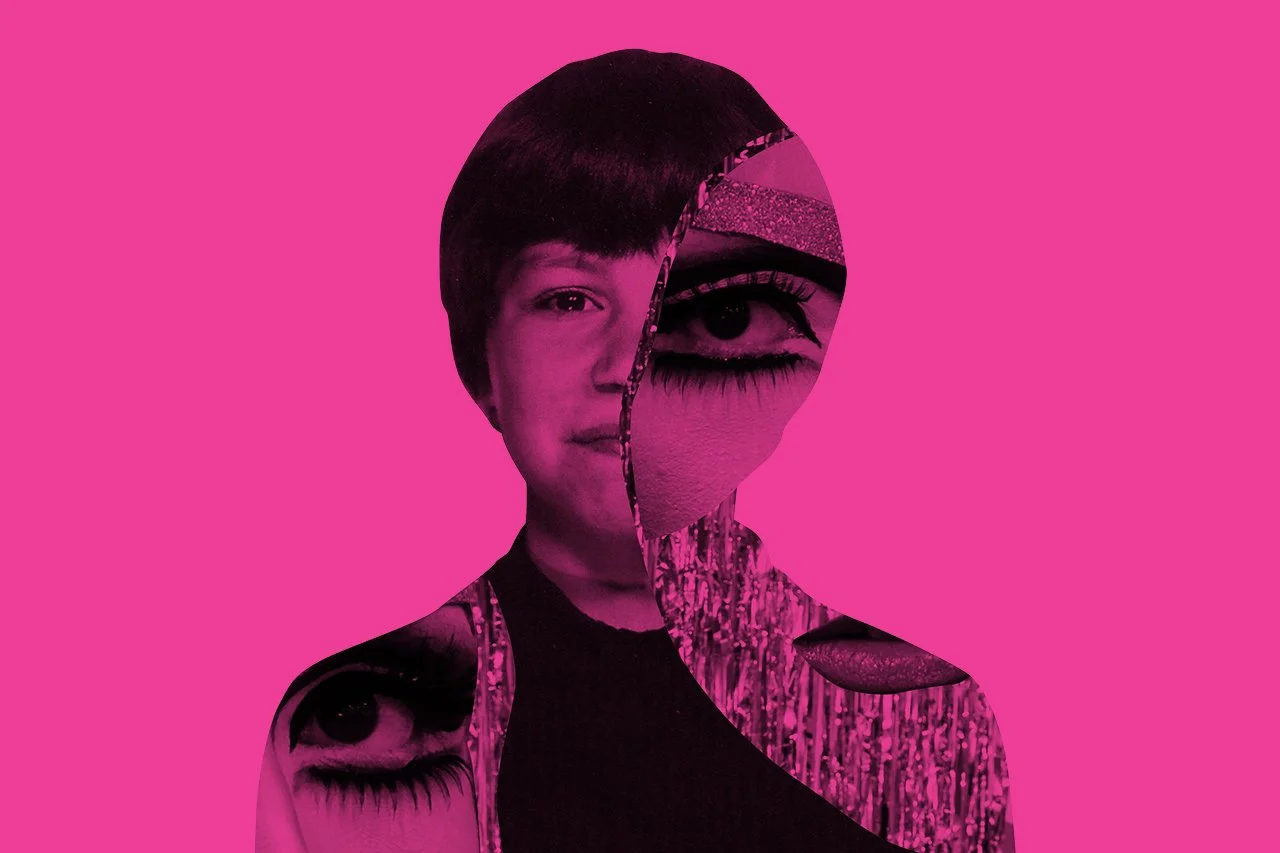Vancouver theatre community pulls back the curtain on systemic racism
The scene finds itself facing a long-overdue racial reckoning
Naomi Gracechild founded Euphony Works to help companies create inclusive and equitable cultures. Photo by Kendra Coupland of Love Tree Photography
NAOMI GRACECHILD IS a Vancouver multidisciplinary artist and founder of Euphony Works, which helps companies and organizations create inclusive and equitable cultures. She had planned on taking a step back from consulting to focus on other projects earlier this year. Then George Floyd, a 46-year old African-American man, was murdered by police in Minneapolis, his agonizing fatal arrest caught on video. Requests for her services spiked.
Gracechild, who’s of Afro-Caribbean and European descent, is now pursuing her art while accepting new clients selectively, prioritizing BIPOC and those who are taking concrete steps to rid their organizations of racism and oppression. Floyd’s horrifying death sparked a racial reckoning around the world, bolstering the Black Lives Matter movement with a level of white support never before seen.
That it took a graphic viral video of a Black man’s death to wake people up is perplexing to Gracechild.
“Does nobody remember Rodney King?” Gracechild says in an interview with Stir, referring to an African-American man (now deceased) who was savagely beaten by four police officers (three of them white) in Los Angeles in 1992, the assault caught on video. Upon the assailants’ acquittal, the city erupted in riots. “Does nobody remember Philando Castile?” (Castile, an African-American man, was murdered in 2017 by a police officer while sitting in his car with his girlfriend, who captured the aftermath on video, and her four-year-old daughter.) “A lot of murders have gone viral; I’m still a little bit baffled by what made this one different, why this one moved people into consciousness.
“These murders have been happening for 400 years on this continent,” she says. “People used to go out for family picnics to watch hangings. It’s not new. Our country is based on a history of genocide of Indigenous people. And in Canada, we like to look to our neighbours to the south as racists. We never talk about racist attacks we get in Canada, but the same things happen here. Patterns of racism and discrimination keep popping up over and over and over again. It is a pathology rather than isolated incidents.”
As people around the world fight for an end to police brutality, systemic racism, and inequality, Vancouver’s arts community is having its own wake-up call.
In an organizational restructure stemming from the impact of COVID-19, for example, the PuSh Performing Arts Festival made headlines for all the wrong reasons. It eliminated the patron – services and associate artistic director positions — both held by women of colour (Janelle Wong-Moon and Joyce Rosario respectively). Public reaction was overwhelming and swift. The board responded with a statement saying it was “deeply sorry for the distress, anger and disappointment we have caused the PuSh and broader arts communities” and promised to “dismantle the systemic inequities embedded in our culture and to decentre white voices across the organization.” Then, Franco Boni, the festival's executive director and a white male, was let go.
Later that month, 14 signatories (including actor and playwright Marcus Youssef and Theatre Replacement’s James Long and Maiko Yamamoto) sent a letter to the PuSh board of directors saying that its restructuring decisions had harmed not only the fest’s reputation but also impacted the very future of Vancouver’s performing arts community.
The organization is now in the throes of a massive review, consulting with community members and long-time supporters of the PuSh Festival. It has hired an advisory group (that includes Yamamoto) and engaged facilitator Nicki Kahnamoui to guide it through the process. The group is posting updates on its website for openness and transparency.
Nicki Kahnamoui.
Maiko Yamamoto.
“These are initial steps in what we hope will be a process that restores your trust in PuSh and results in a healthy, strong, inclusive, and sustainable organization with empowered artistic leadership,” board president Jessica Bouchard and managing director Jason Dubois wrote in a September 17 letter to supporters. “An organization that can continue its legacy of serving Vancouver audiences and providing a venue for innovative artistic practices, a platform for systemically underrepresented voices, and a stage for a broad diversity of artists.”
Following the death of George Floyd, the Arts Club Theatre Company was among many organizations all over Canada that released a statement in response. The company outlined steps it’s taking to “explore where there are barriers to inclusion within the company—including those created by systemic racism”. Those actions include collaboration with paid BIPOC artists to strategically dismantle systemic racism, the creation of an anti-racism policy for all employees, the hiring of an accessibility coordinator to create inclusive programs for people with disabilities, the formation of a forthcoming fund for anti-racist activities, an internal audit to collect data about diversity of past and current teams, and more.
The conversation around inclusion and anti-racism may be getting larger and louder, but it’s hardly new.
In 2015, Youssef, actor and writer Omari Newton, and other signatories wrote an open letter to the president and board of directors of the Jessie Richardson Theatre Awards Society, pointing to the lack of diverse representation on its boards and juries. The organization set up a diversity committee. At this year’s awards, however, only eight of the 41 winners were BIPOC.
To ensure that the city’s performing arts scene truly becomes and remains one of diversity, equity, and inclusion, Gracechild and other local artists say an entire shift in thinking is necessary.
“All the training everywhere is white Eurocentric,” says Pedro Chamale, cofounder of rice & beans theatre. Photo by Christine Quintana
Gracechild, who identifies as a Black queer woman with disabilities—and who says she has faced many barriers throughout her life and career—was born in Vancouver and lived in several cities across Canada before returning to the West Coast three years ago. She has worked for numerous arts and not-for-profit organizations and has done arts programming for youth. In her experience, nonprofits have a top-down approach, with artists at the bottom, and are set up in such a way that people with lived experience are not centred in decision-making. Beyond diversity and inclusion, Gracechild wants healing and justice.
“The arts are especially insidious because the arts are seen as progressive,” Gracechild says. “Why are the same organizations that have been habitually racist still given funding? Why give money to racist organizations to fix their racism when you could give money to racialized artists and arts companies?
“Right now, who’s visible and who’s known depends upon who has funding and who has access to infrastructure,” she says. “The arts have a great capacity to build empathy and to build understanding and to build relationships and to heal. However, if that’s not the art that’s being funded, the same story is being perpetuated.”
Derek Chan and Pedro Chamale launched Vancouver’s rice and beans theatre a decade ago with the very goal of presenting stories that reflect diverse backgrounds. Chan immigrated to Canada from Hong Kong in 2005, and Chamale is a first-generation Canadian whose family is from Guatemala and who grew up in Chetwynd, a town in northern B.C, of about 2,700. Having met while studying at Simon Fraser University, they have a series called DBLSPK (Double Speak), a coproduction with Boca del Lupo. It consists of translated multilingual works that represent some of the languages spoken in Canada, including Cantonese, Mandarin, and Spanish. Ten years in, and the pair’s work is clearly more vital now than ever.
There was a time when Derek Chan of rice & beans theatre tried to hide his accent. Photo by Brenda Kent and Jules Le Mason
“Even when we were fresh university grads, we noticed that as writers and directors and show makers there weren’t any platforms or companies or presenters that facilitated works from artists of colour,” Chan says. “We’re interested in talking about stories about where we came from and where we’re going. It’s about not being ashamed of who you really are.
“For the longest time in theatre school, I tried to get rid of my Hong Kong accent,” he says. “As a 20-year-old I realized I’m not going to get a job if I don’t speak properly. Back then I would pretend I didn’t speak Cantonese.”
Chamale adds: “Our progression into the exploration of multilingual and multicultural work is reflective of the process we had through theatre school and our encounters through the colonial system that have affected our lives. All the training everywhere is white Eurocentric, and so as we’ve gotten further away from school, we sloughed off more of that restriction. It’s kind of like reclaiming or exploring non-Eurocentric theatre—with those same tools—by including different languages that weren’t considered by the canon.”
He notes, too, that tied to racial awakening within the arts is the need for class reckoning. “Class is not being talked about, but class is affecting who can access training, who can actually have a career in the arts,” Chamale says. “The arts are becoming so elitist that the only people who can access arts training are those who come from privileged backgrounds economically.”
Rohit Chokhani, executive director of the Vancouver Fringe Festival, wants to see diversity of language in local theatre, among other approaches. Photo by Raymond Kam
Rice & beans—which was the 2019-20 Arts Club Theatre’s company in residence—hopes to resume DBLSPK with Boca del Lupo later this fall, likely virtually, while each of the founders has a piece in the works. Chamale’s Made in Canada: An agricultural operetta is ready to go, pending pandemic-related scheduling; told through text and song, the play explores the lives of the unseen people who plant and harvest Canada’s produce, drawing on the words and experiences of temporary foreign workers. Chan is developing Yellow Objects, the first of two semi-fictional protest plays about the pro-democracy movement in Hong Kong.
Whether it’s the fight for democratic freedom in China or for racial justice in the local arts scene, Chan says it’s important to take the long view.
“We want change now, we need change now, and we have needed change, but also, like any other revolution, it takes time, and it’s often not, unfortunately, for us to see,” Chan says. “It’s for the future. It’s about the people who are to come.”
Rohit Chokhani, executive director for the Vancouver Fringe Festival, says that the goal moving forward is to keep providing those safe spaces and to represent the under- and unrepresented. The Mumbai-born producer and director says those inclusive actions include making the festival more accessible for people of different abilities (artists, staff members, and supporters), with services such as ASL translation and visual descriptions.
“Change can only happen if we have the right people on our team and a huge shift in how we operate on an ongoing basis,” Chokhani says. “For me, this is very exciting not just because of the fact that we can make change happen but also because I am a person of colour and I have been involved in the Fringe since 2011. My career started at the Fringe and nine years later, I’m the executive director. I can see the potential of where someone’s career can go because of the mandate we have.
One of his goals is to offer programming in languages other than English, including various Indigenous dialects, Chinese, Cantonese, Punjabi, Hindi, and more. “That’s what I want to explore more in the years ahead,” Chokhani says. “How we can create systems and processes so we can really welcome everybody?”



